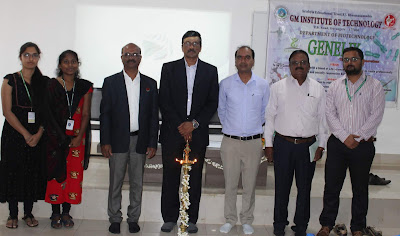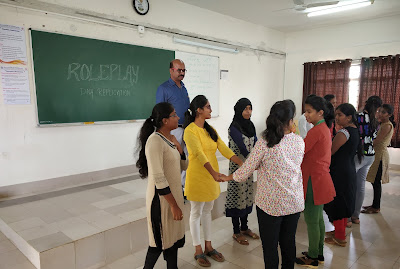Inauguration Function of Fourm of Department of Biotechnology GENELIX 2019-2020 -Targeting Life’s Innovations Date: 27/08/2019 Chief Guest Dr. Ragvendra Ramappa Scientist , Dept. of Biology IISC, Kudapura, Chalkere President Dr. Y. Vijaya Kumar Principal, GMIT Forum Chairman Dr. H. Gurumurthy Professor & Head, Dept. of Biotechnology Forum Coordinator Dr. Gurumurthy D M Asst. Professor Dept. of Biotechnology Venue: Dr. C. N. R. Rao Seminar Hall (T432A) AT 10:00 AM Agenda MOC: Sheezan M H (V sem) o Invocation : Dhanyashree & Yashaswini D B o W...


